
Below is the extraordinary Helen Keller poem "The Song of the Stone Wall" that is only on the web at
Project Gutenberg that I can find.
First, a brief refresher bio of this writer.
~ ~ ~from Helen Keller Services for the BlindBiography of Helen KellerThe story of Helen Keller is the story of a normal child who, at the age of 18 months, was suddenly shut off from the world but, against overwhelming odds, waged a slow, hard but successful battle to re-enter that same world. The child grew into a highly intelligent and sensitive woman who wrote, spoke and labored incessantly for the betterment of others.
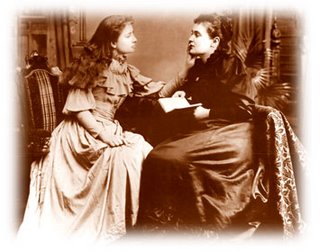
Helen was born in Tuscumbia, Alabama on June 27, 1880. However, her real life began one day in March of 1887, when she was almost seven years old. She was always to call that the most important day I can remember in my life. It was the day when Annie Sullivan, a 20-year-old graduate of the Perkins School for the Blind, came to be her teacher. They were inseparable until Annie’s death in 1936.
Even as a little girl Helen expressed a desire to go to college. In 1900, she entered Radcliffe College and graduated from there cum laude in 1904. She thus became the first deaf-blind person to graduate from college. Throughout these years, Annie Sullivan laboriously spelled books and lectures into her pupil's hand.
While still at Radcliffe, Helen Keller began the writing career, which was to continue for 50 years. In addition to The Story of My Life, she wrote 11 other books and numerous articles on blindness, deafness, social issues and women's rights.
Despite the broad range of her interests, Helen Keller never lost sight of the needs of others who were blind and deaf-blind. She was a personal friend of Dr. Peter J. Salmon, Executive Director of Helen Keller Services for the Blind (then known as the Industrial Home for the Blind) and lent her support to the establishment of what has become known as the Helen Keller National Center for the Deaf-Blind Youths and Adults. She was a visitor to a number of facilities and programs operated by IHB.
In 1936, Helen Keller moved to Westport, Connecticut, where she lived until her death on June 1, 1968, at the age of 87. In his eulogy at her funeral, Senator Lister Hill said of her, "She will live on, one of the few, immortal names not born to die. Her spirit will endure as long as man can read and stories can be told of the woman who showed the world there are no boundaries to courage and faith."
~ ~ ~produced by Jamie Taylor in memory of Helen Kellercopyright, 1909, 1910; published October, 1910
~ ~ ~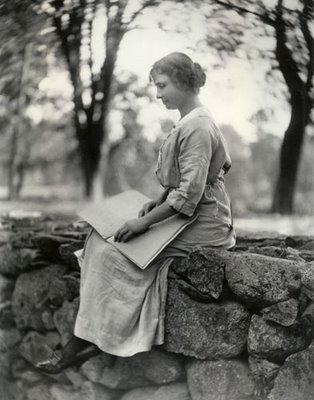 by Helen KellerThe Song of the Stone WallDedication
by Helen KellerThe Song of the Stone WallDedicationWhen I began "The Song of the Stone Wall," Dr. Edward Everett Hale was still among us, and it was my intention to dedicate the poem to him if it should be deemed worthy of publication. I fancied that he would like it; for he loved the old walls and the traditions that cling about them.
As I tried to image the men who had built the walls long ago, it seemed to me that Dr. Hale was the living embodiment of whatever was heroic in the founders of New England. He was a great American. He was also a great Puritan. Was not the zeal of his ancestors upon his lips, and their courage in his heart? Had they not bequeathed to him their torch-like faith, their patient fervor of toil and their creed of equality?
But his bright spirit had inherited no trace of their harshness and gloom. The windows of his soul opened to the sunlight of a joyous faith. His optimism and genial humor inspired gladness and good sense in others. With an old story he prepared their minds to receive new ideas, and with a parable he opened their hearts to generous feelings. All men loved him because he loved them. They knew that his heart was in their happiness, and that his humanity embraced their sorrows. In him the weak found a friend, the unprotected, a champion. Though a herald and proclaimer of peace, he could fight stubbornly and passionately on the side of justice. His was a lovable, uplifting greatness which drew all men near and ever nearer to God and to each other. Like his ancestors, he dreamed of a land of freedom founded on the love of God and the brotherhood of man, a land where each man shall achieve his share of happiness and learn the work of manhood—to rule himself and "lend a hand."
Thoughts like these were often in my mind as the poem grew and took form. It is fitting, therefore, that I should dedicate it to him, and in so doing I give expression to the love and reverence which I have felt for him ever since he called me his little cousin, more than twenty years ago.
Helen Keller
Wrentham, Massachusetts,
January, 1910.~ ~ ~ The Song of the Stone Wall
The Song of the Stone WallCome walk with me, and I will tell
What I have read in this scroll of stone;
I will spell out this writing on hill and meadow.
It is a chronicle wrought by praying workmen,
The forefathers of our nation--
Leagues upon leagues of sealed history awaiting an interpreter.
This is New England's tapestry of stone
Alive with memories that throb and quiver
At the core of the ages
As the prophecies of old at the heart of God's Word.
The walls have many things to tell me,
And the days are long. I come and listen:
My hand is upon the stones, and the tale I fain would hear
Is of the men who built the walls,
And of the God who made the stones and the workers.
With searching feet I walk beside the wall;
I plunge and stumble over the fallen stones;
I follow the windings of the wall
Over the heaving hill, down by the meadow-brook,
Beyond the scented fields, by the marsh where rushes grow.
On I trudge through pine woods fragrant and cool
And emerge amid clustered pools and by rolling acres of rye.
The wall is builded of field-stones great and small,
Tumbled about by frost and storm,
Shaped and polished by ice and rain and sun;
Some flattened, grooved, and chiseled
By the inscrutable sculpture of the weather;
Some with clefts and rough edges harsh to the touch.
Gracious Time has glorified the wall
And covered the historian stones with a mantle of green.
Sunbeams flit and waver in the rifts,
Vanish and reappear, linger and sleep,
Conquer with radiance the obdurate angles,
Filter between the naked rents and wind-bleached jags.
I understand the triumph and the truth
Wrought into these walls of rugged stone.
They are a miracle of patient hands,
They are a victory of suffering, a paean of pain;
All pangs of death, all cries of birth,
Are in the mute, moss-covered stones;
They are eloquent to my hands.
O beautiful, blind stones, inarticulate and dumb!
In the deep gloom of their hearts there is a gleam
Of the primeval sun which looked upon them
When they were begotten.
So in the heart of man shines forever
A beam from the everlasting sun of God.
Rude and unresponsive are the stones;
Yet in them divine things lie concealed;
I hear their imprisoned chant:--
"We are fragments of the universe,
Chips of the rock whereon God laid the foundation of the world:
Out of immemorial chaos He wrought us.
Out of the sun, out of the tempest, out of the travail of the earth we grew.
We are wonderfully mingled of life and death;
We serve as crypts for innumerable, unnoticed, tiny forms.
We are manifestations of the Might
That rears the granite hills unto the clouds
And sows the tropic seas with coral isles.
We are shot through and through with hidden color;
A thousand hues are blended in our gray substance.
Sapphire, turquoise, ruby, opal,
Emerald, diamond, amethyst, are our sisters from the beginning,
And our brothers are iron, lead, zinc,
Copper and silver and gold.
We are the dust of continents past and to come,
We are a deathless frieze carved with man's destiny;
In us is the record sibylline of far events.
We are as old as the world, our birth was before the hills.
We are the cup that holds the sea
And the framework of the peak that parts the sky.
When Chaos shall again return,
And endless Night shall spread her wings upon a rained world,
We alone shall stand up from the shattered earth,
Indestructible, invincible witnesses of God's eternal purpose."
In reflective mood by the wall I wander;
The hoary stones have set my heart astir;
My thoughts take shape and move beside me in the guise
Of the stern men who built the wall in early olden days.
One by one the melancholy phantoms go stepping from me,
And I follow them in and out among the stones.
I think of the days long gone,
Flown like birds beyond the ramparts of the world.
The patient, sturdy men who piled the stones
Have vanished, like the days, beyond the bounds
Of earth and mortal things.
From their humble, steadfast lives has sprung the greatness of my nation.
I am bone of their bone, breath of their breath,
Their courage is in my soul.
The wall is an Iliad of granite: it chants to me
Of pilgrims of the perilous deep,
Of fearless journeyings and old forgotten things.
The blood of grim ancestors warms the fingers
That trace the letters of their story;
My pulses beat in unison with pulses that are stilled;
The fire of their zeal inspires me
In my struggle with darkness and pain.
These embossed books, unobliterated by the tears and laughter of Time,
Are signed with the vital hands of undaunted men.
I love these monoliths, so crudely imprinted
With their stalwart, cleanly, frugal lives.
From my seat among the stones I stretch my hand and touch
My friend the elm, urnlike, lithesome, tall.
Far above the reach of my exploring fingers
Birds are singing and winging joyously
Through leafy billows of green.
The elm-tree's song is wondrous sweet;
The words are the ancientest language of trees--
They tell of how earth and air and light
Are wrought anew to beauty and to fruitfulness.
I feel the glad stirrings under her rough bark;
Her living sap mounts up to bring forth leaves;
Her great limbs thrill beneath the wand of spring.
This wall was builded in our fathers' days--
Valorous days when life was lusty and the land was new.
Resemble the walls the builders, buffeted, stern, and worn.
To us they left the law,
Order, simplicity, obedience,
And the wall is the bond they gave the nation
At its birth of courage and unflinching faith.
Before the epic here inscribed began,
They wrote their course upon a trackless sea.
O, tiny craft, bearing a nation's seed!
Frail shallop, quick with unborn states!
Autumn was mellow in the fatherland when they set sail,
And winter deepened as they neared the West.
Out of the desert sea they came at last,
And their hearts warmed to see that frozen land.
O, first gray dawn that filtered through the dark!
Bleak, glorious birth-hour of our northern states!
They stood upon the shore like new created men;
On barren solitudes of sand they stood,
The conquered sea behind, the unconquered wilderness before.
Some died that year beneath the cruel cold,
And some for heartsick longing and the pang
Of homes remembered and souls torn asunder.
That spring the new-plowed field for bread of life
Bordered the new-dug acre marked for death;
Beside the springing corn they laid in the sweet, dark earth
The young man, strong and free, the maiden fair and trustful,
The little child, and the uncomplaining mother.
Across the meadow, by the ancient pines,
Where I, the child of life that lived that spring,
Drink in the fragrances of the young year,
The field-wall meets one grimly squared and straight.
Beyond it rise the old tombs, gray and restful,
And the upright slates record the generations.
Stiffly aslant before the northern blasts,
Like the steadfast, angular beliefs
Of those whom they commemorate, the headstones stand,
Cemented deep with moss and invisible roots.
The rude inscriptions charged with faith and love,
Graceless as Death himself, yet sweet as Death,
Are half erased by the impartial storms.
As children lisping words which move to laughter
Are themselves poems of unconscious melody,
So the old gravestones with their crabbed muse
Are beautiful for their halting words of faith,
Their groping love that had no gift of song.
But all the broken tragedy of life
And all the yearning mystery of death
Are celebrated in sweet epitaphs of vines and violets.
Close by the wall a peristyle of pines
Sings requiem to all the dead that sleep.
Beyond the village churchyard, still and calm,
Steeped in the sweetness of eternal morn,
The wall runs down in crumbling cadence
Beside the brook which plays
Through the land like a silver harp.
A wind of ancient romance blows across the field,
A sweet disturbance thrills the air;
The silken skirts of Spring go rustling by,
And the earth is astir with joy.
Up the hill, romping and shaking their golden heads,
Come the little children of the wood.
From ecstasy to ecstasy the year mounts upward.
Up from the south come the odor-laden winds,
Angels and ministers of life,
Dropping seeds of fruitfulness
Into the bosoms of flowers.
Elusive, alluring secrets hide in wood and hedge
Like the first thoughts of love
In the breast of a maiden;
The witchery of love is in rock and tree.
Across the pasture, star-sown with daisies,
I see a young girl--the spirit of spring she seems,
Sister of the winds that run through the rippling daisies.
Sweet and clear her voice calls father and brother,
And one whose name her shy lips will not utter.
But a chorus of leaves and grasses speaks her heart
And tells his name: the birches flutter by the wall;
The wild cherry-tree shakes its plumy head
And whispers his name; the maple
Opens its rosy lips and murmurs his name;
The marsh-marigold sends the rumor
Down the winding stream, and the blue flag
Spread the gossip to the lilies in the lake:
All Nature's eyes and tongues conspire
In the unfolding of the tale
That Adam and Eve beneath the blossoming rose-tree
Told each other in the Garden of Eden.
Once more the wind blows from the walls,
And I behold a fair young mother;
She stands at the lilac-shaded door
With her baby at her breast;
She looks across the twilit fields and smiles
And whispers to her child: "Thy father comes!"
Life triumphed over many-weaponed Death.
Sorrow and toil and the wilderness thwarted their stout invasion;
But with the ship that sailed again went no retreating soul!
Stubborn, unvanquished, clinging to the skirts of Hope,
They kept their narrow foothold on the land,
And the ship sailed home for more.
With yearlong striving they fought their way into the forest;
Their axes echoed where I sit, a score of miles from the sea.
Slowly, slowly the wilderness yielded
To smiling grass-plots and clearings of yellow corn;
And while the logs of their cabins were still moist
With odorous sap, they set upon the hill
The shrine of liberty for man's mind,
And by it the shrine of liberty for man's soul,
The school-house and the church.
The apple-tree by the wall sheds its blossom about me--
A shower of petals of light upon darkness.
From Nature's brimming cup I drink a thousand scents;
At noon the wizard sun stirs the hot soil under the pines.
I take the top stone of the wall in my hands
And the sun in my heart;
I feel the rippling land extend to right and left,
Bearing up a receptive surface to my uncertain feet;
I clamber up the hill and beyond the grassy sweep;
I encounter a chaos of tumbled rocks.
Piles of shadow they seem, huddling close to the land.
Here they are scattered like sheep,
Or like great birds at rest,
There a huge block juts from the giant wave of the hill.
At the foot of the aged pines the maiden's moccasins
Track the sod like the noiseless sandals of Spring.
Out of chinks in the wall delicate grasses wave,
As beauty grew out of the crannies of these hard souls.
Joyously, gratefully, after their long wrestling
With the bitter cold and the harsh white winter,
They heard the step of Spring on the edge of melting snow-drifts;
Gladly, with courage that flashed from their life-beaten souls,
As the fire-sparks fly from the hammered stone,
They hailed the fragrant arbutus;
Its sweetness trailed beside the path that they cut through the forest,
And they gave it the name of their ship Mayflower.
Beauty was at their feet, and their eyes beheld it;
The earth cried out for labor, and they gave it.
But ever as they saw the budding spring,
Ever as they cleared the stubborn field,
Ever as they piled the heavy stones,
In mystic vision they saw, the eternal spring;
They raised their hardened hands above the earth,
And beheld the walls that are not built of stone,
The portals opened by angels whose garments are of light;
And beyond the radiant walls of living stones
They dreamed vast meadows and hills of fadeless green.
In the old house across the road
With weather-beaten front, like the furrowed face of an old man,
The lights are out forever, the windows are broken,
And the oaken posts are warped;
The storms beat into the rooms as the passion of the world
Racked and buffeted those who once dwelt in them.
The psalm and the morning prayer are silent.
But the walls remain visible witnesses of faith
That knew no wavering or shadow of turning.
They have withstood sun and northern blast,
They have outlasted the unceasing strife
Of forces leagued to tear them down.
Under the stars and the clouds, under the summer sun,
Beaten by rain and wind, covered with tender vines,
The walls stand symbols of a granite race,
The measure and translation of olden times.
In the rough epic of their life, their toil, their creeds,
Their psalms, their prayers, what stirring tales
Of days that were their past had they to tell
Their children to keep the new faith burning?
Tales of grandsires in the fatherland
Whose faith was seven times tried in fiery furnaces,--
Of Rowland Taylor who kissed the stake,
And stood with hands folded and eyes steadfastly turned
To the sky, and smiled upon the flames;
Of Latimer, and of Cranmer who for cowardice heroically atoned--
Who thrust his right hand into the fire
Because it had broken plight with his heart
And written against the voice of his conviction.
With such memories they exalted and cherished
The heroism of their tried souls,
And ours are wrung with doubt and self-distrust!
I am kneeling on the odorous earth;
The sweet, shy feet of Spring come tripping o'er the land,
Winter is fled to the hills, leaving snowy wreaths
On apple-tree, meadow, and marsh.
The walls are astir; little waves of blue
Run through my fingers murmuring:
"We follow the winds and the snow!"
Their heart is a cup of gold.
Soft whispers of showers and flowers
Are mingled in the spring song of the walls.
Hark to the songs that go singing like the wind
Through the chinks of the wall and thrill the heart
And quicken it with passionate response!
The walls sing the song of wild bird, the hoof-beat of deer,
The murmur of pine and cedar, the ripple of many streams;
Crows are calling from the Druidical wood;
The morning mist still haunts the meadows
Like the ghosts of the wall builders.
As I listen, methinks I hear the bitter plaint
Of the passing of a haughty race,
The wronged, friendly, childlike, peaceable tribes,
The swarthy archers of the wilderness,
The red men to whom Nature opened all her secrets,
Who knew the haunts of bird and fish,
The hidden virtue of herb and root;
All the travail of man and beast they knew--
Birth and death, heat and cold,
Hunger and thirst, love and hate;
For these are the unchanging things writ in the imperishable book of life
That man suckled at the breast of woman must know.
In the dim sanctuary of the pines
The winds murmur their mysteries through dusky aisles--
Secrets of earth's renewal and the endless cycle of life.
Living things are afoot among the grasses;
The closed fingers of the ferns unfold,
New bees explore new flowers, and the brook
Pours virgin waters from the rushing founts of May.
In the old walls there are sinister voices--
The groans of women charged with witchcraft.
I see a lone, gray, haggard woman standing at bay,
Helpless against her grim, sin-darkened judges.
Terror blanches her lips and makes her confess
Bonds with demons that her heart knows not.
Satan sits by the judgment-seat and laughs.
The gray walls, broken, weatherworn oracles,
Sing that she was once a girl of love and laughter,
Then a fair mother with lullabies on her lips,
Caresses in her eyes, who spent her days
In weaving warmth to keep her brood against the winter cold.
And in her tongue was the law of kindness;
For her God was the Lord Jehovah.
Enemies uprose and swore her accused,
Laid at her door the writhing forms of little children,
And she could but answer: "The Evil One
Torments them in my shape."
She stood amazed before the tribunal of her church
And heard the gate of God's house closed against her.
Oh, shuddering silence of the throng,
And fearful the words spoken from the judgment-seat!
She raised her white head and clasped her wrinkled hands:
"Pity me, Lord, pity my anguish!
Nor, since Thou art a just and terrible God,
Forget to visit thy wrath upon these people;
For they have sworn away the life of Thy servant
Who hath lived long in the land keeping Thy commandments.
I am old, Lord, and betrayed;
By neighbor and kin am I betrayed;
A Judas kiss hath marked me for a witch.
Possessed of a devil? Here be a legion of devils!
Smite them, O God, yea, utterly destroy them that persecute the innocent."
Before this mother in Israel the judges cowered;
But still they suffered her to die.
Through the tragic, guilty walls I hear the sighs
Of desolate women and penitent, remorseful men.
Sing of happier themes, O many-voiced epic,
Sing how the ages, like thrifty husbandmen, winnow the creeds of men,
And leave only faith and love and truth.
Sing of the Puritan's nobler nature,
Fathomless as the forests he felled,
Irresistible as the winds that blow.
His trenchant conviction was but the somber bulwark
Which guarded his pure ideal.
Resolute by the communion board he stood,
And after solemn prayer solemnly cancelled
And abolished the divine right of kings
And declared the holy rights of man.
Prophet and toiler, yearning for other worlds, yet wise in this;
Scornful of earthly empire and brooding on death,
Yet wrestling life out of the wilderness
And laying stone on stone the foundation of a temporal state!
I see him standing at his cabin-door at eventide
With dreaming, fearless eyes gazing at sunset hills;
In his prophetic sight Liberty, like a bride,
Hasteth to meet her lord, the westward-going man!
Even as he saw the citadel of Heaven,
He beheld an earthly state divinely fair and just.
Mystic and statesman, maker of homes,
Strengthened by the primal law of toil,
And schooled by monarch-made injustices,
He carried the covenant of liberty with fire and sword,
And laid a rich state on frugality!
Many republics have sprung into being,
Full-grown, equipped with theories forged in reason;
All, all have fallen in a single night;
But to the wise, fire-hardened Puritan
Democracy was not a blaze of glory
To crackle for an hour and be quenched out
By the first gust that blows across the world.
I see him standing at his cabin-door,
And all his dreams are true as when he dreamed them;
But only shall they be fulfilled if we
Are mindful of the toil that gave him power,
Are brave to dare a wilderness of wrong;
So long shall Nature nourish us and Spring
Throw riches in the lap of man
As we beget no wasteful, weak-handed generations,
But bend us to the fruitful earth in toil.
Beyond the wall a new-plowed field lies steaming in the sun,
And down the road a merry group of children
Run toward the village school.
Hear, O hear! In the historian walls
Rises the beat and the tumult of the struggle for freedom.
Sacred, blood-stained walls, your peaceful front
Sheltered the fateful fires of Lexington;
Builded to fence green fields and keep the herds at pasture,
Ye became the frowning breastworks of stern battle;
Lowly boundaries of the freeman's farm,
Ye grew the rampart of a land at war;
And still ye cross the centuries
Between the ages of monarchs and the age
When farmers in their fields are kings.
From the Revolution the young Republic emerged,
She mounted up as on the wings of the eagle,
She ran and was not weary, and all the children of the world
Joined her and followed her shining path.
But ever as she ran, above her lifted head
Darkened the monster cloud of slavery.
Hark! In the walls, amid voices of prayer and of triumph,
I hear the clank of manacles and the ominous mutterings of bondsmen!
At Gettysburg, our Golgotha, the sons of the fathers
Poured their blood to wash out a nation's shame.
Cleansed by tribulation and atonement,
The broken nation rose from her knees,
And with hope reborn in her heart set forth again
Upon the open road to ideal democracy.
Sing, walls, in lightning words that shall cause the world to vibrate,
Of the democracy to come,
Of the swift, teeming, confident thing!
We are part of it--the wonder and the terror and the glory!
Fearless we rush forward to meet the years,
The years that come flying towards us
With wings outspread, agleam on the horizon of time!
O eloquent, sane walls, instinct with a new faith,
Ye are barbarous, in congruous, but great with the greatness of reality.
Walls wrought in unfaltering effort,
Sing of our prosperity, the joyous harvest
Of the labor of lusty toilers.
Down through the years comes the ring of their victorious axes:
"Ye are titans of the forest, but we are stronger;
Ye are strong with the strength of mighty winds,
But we are strong with the unconquerable strength of souls!"
Still the young race, unassailable, inviolate,
Shakes the solitudes with the strokes of creation;
Doubly strong we renew the valorous days,
And like a measureless sea we overflow
The fresh green, benevolent West,
The buoyant, fruitful West that dares and sings!
Pure, dew-dripping walls that guard
The quiet, lovable, fertile fields,
Sing praises to Him who from the mossy rocks
Can bid the fountains leap in thirsty lands.
I walk beside the stones through the young grain,
Through waves of wheat that billow about my knees.
The walls contest the onward march of the wheat;
But the wheat is charged with the life of the world;
Its force is irresistible; onward it sweeps,
An engulfing tide, over all the land,
Till hill and valley, field and plain
Are flooded with its green felicity!
Out of the moist earth it has sprung;
In the gracious amplitudes of her bosom it was nurtured,
And in it is wrought the miracle of life.
Sing, prophetic, mystic walls, of the dreams of the builders;
Sing in thundering tones that shall thrill us
To try our dull discontent, our barren wisdom
Against their propagating, unquenchable, questionless visions.
Sing in renerving refrain of the resolute men,
Each a Lincoln in his smoldering patience,
Each a Luther in his fearless faith,
Who made a breach in the wall of darkness
And let the hosts of liberty march through.
Calm, eternal walls, tranquil, mature,
Which old voices, old songs, old kisses cover,
As mosses and lichens cover your ancient stones,
Teach me the secret of your serene repose;
Tell of the greater things to be,
When love and wisdom are the only creed,
And law and right are one.
Sing that the Lord cometh, the Lord cometh,
The fountain-head and spring of life!
Sing, steady, exultant walls, in strains hallowed and touched with fire,
Sing that the Lord shall build us all together.
As living stones build us, cemented together.
May He who knoweth every pleasant thing
That our sires forewent to teach the peoples law and truth,
Who counted every stone blessed by their consecrated hands,
Grant that we remain liberty-loving, substantial, elemental,
And that faith, the rock not fashioned of human hands,
Be the stability of our triumphant, toiling days.
 ~ ~ ~
~ ~ ~
 The two fun fish poems below are by an anonymous poet. Andrew Mullins is possibly the poet's penname as far as can be surmised.
The two fun fish poems below are by an anonymous poet. Andrew Mullins is possibly the poet's penname as far as can be surmised.



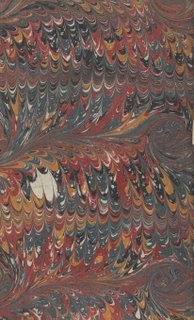


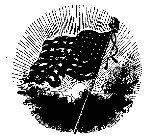
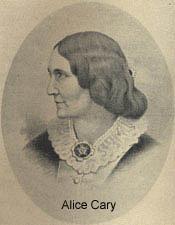

















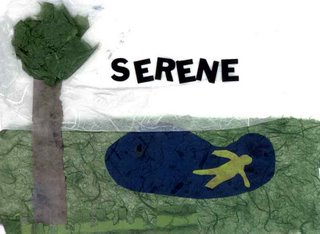




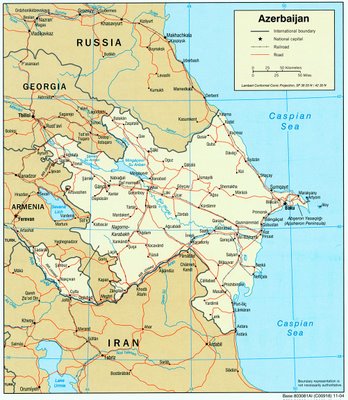





+Adam+and+Eve+Driven+from+the+Garden.jpg)
